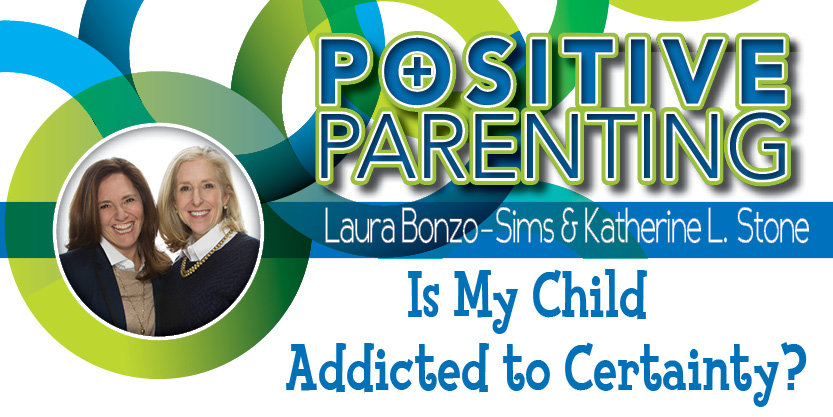Positive Parenting: Is My Child Addicted to Certainty?
Today’s kids expect certainty. Predictability. Knowing. Knowing exactly how things will turn out. And if they don’t know and can’t plan for each step, some freak out, struggling to tolerate the distress that comes with not knowing.
How Did Kids Get So Rigid?
Have parents, teachers and professionals unknowingly created the expectation of certainty in today’s children?
Perhaps this is a product of misguided advice from the mental health and education fields to create predictability to help kids feel secure in their environment.
From infancy, parents are told to put their children on a strict schedule. Preschools have set routines to make class run smoothly.
The well-intentioned use of predictability has led to the unintentional consequence of today’s kids lacking flexibility and coping skills in an uncertain world.
One University of Louisville student said: “Growing up, everything in my life was scheduled.” Since college: “I realize that while the structure made me feel safe, it also made me uncomfortable with unexpected changes and a bit rigid in my routine.”
So, now what?
– Be mindful of what you model.
When your child has slipped up, do you ask them for promises that “this will never happen again,” requesting certainty?
Instead, discuss potential setbacks and how your child can decrease the possibility these could occur.
– Catch your child when he’s stuck in the “what if” zone and try help him be in the moment.
– Give your child the “gift of maybe.” Have conversations about not knowing the outcome of a situation with a focus on your child’s ability to handle uncertainty.
– Help your children remember a time when they weren’t certain of the outcome and remind them that they survived the past uncertainty, and maybe even had a fabulous time.
– Have your child write down her biggest fear and ask herself, “Am I absolutely certain this is true?” Then have your child write “maybe” statements such as, “Maybe I will make the cheer team and maybe I won’t.”
– Find opportunities where you do NOT provide concrete reassurance such as, “I don’t know if you’ll get shots at the pediatrician today. But I know if you do, you will make it through it.”
These little parenting shifts that we make can lead to major change in our children’s ability to expect and tolerate distress.
So, tomorrow when your child asks, “Am I going to make the select soccer team? Please, please, reassure me I will,” pause, think about the gift of uncertainty and say, “I don’t know. Maybe you will and maybe you won’t, but whatever the outcome, I know you have the skill to get through it.”
Laura Bonzo-Sims, Ed.D. has been an educator for 25 years, serving as a college advisor, middle and high school English teacher, and graduate school professor.
Katherine L. Stone, Ph.D. is a licensed psychologist who has practiced in Lexington for almost 20 years, focusing on issues mental health issues that affect today’s youth and young adults. Contact them at www.parentingparadox.org

